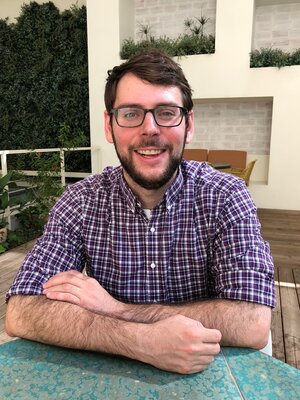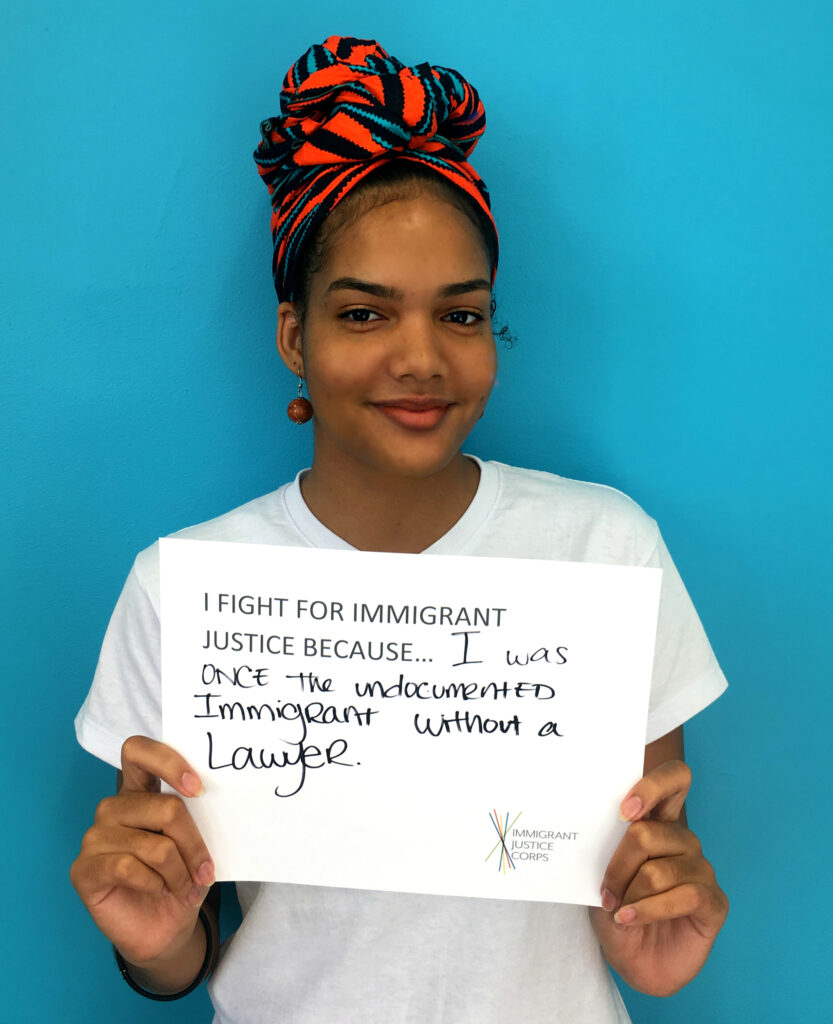Alumni Spotlight: Aaron Reichlin-Melnick
As Immigrant Justice Corps prepares to celebrate its sixth anniversary in February, we are reflecting on the 140+ Fellows who have come through our program and where they are now. We spoke to a member of our inaugural Class of 2014, Aaron Reichlin-Melnick, policy counsel at American Immigration Council, to see how the Fellowship has impacted his career.
Aaron Reichlin-Melnick almost didn’t become a Fellow. “I actually found out about IJC’s Fellowship a week before the application period closed.” Undeterred by the short deadline, he pulled together his application and was accepted into the inaugural class.
“I always knew I was interested in immigration law,” Aaron said. He worked in the asylum clinic during law school at Georgetown and volunteered with Capital Area Immigrant Rights Coalition (CAIR). “IJC really fit the model of what I was looking for, which was the opportunity to work with an organization doing pro bono immigration work.”
Aaron was placed at The Legal Aid Society, where he gained unmatched experience. “It was removal defense at a public defender organization which was a really fascinating way to start my career.”
The experience gave him an extraordinarily broad overview of the world of removal defense. “In my two years I saw so much. New York is a really fascinating place to practice immigration law. There are so many immigrants that you see a lot of different scenarios and legal situations that really run the gamut. I had a diverse array of clients and I was able to make connections with people who had been practicing for decades.”
Aaron was also the third Fellow ever to go down to the Karnes Family Detention Center in Texas as part of IJC’s Rapid Response initiative. Aaron was at Karnes the week that Judge Dolly M. Gee, U.S. District Judge in California, ordered the Obama administration to limit the amount of time immigrant families could be held in detention. “I got to see what family detention looked like without the 20-day limit, so I saw the difference it made.”

Near the end of his Fellowship in 2016, Aaron’s partner got a job in Washington DC, which precipitated a move to the Capital. “DC is a very policy focused place for immigration law. At the time there were not a ton of immigration law jobs.” When he saw an opportunity with American Immigration Council he jumped at it and became a staff attorney doing impact litigation. “I believed that switching to impact litigation was an exciting way to do immigrant advocacy in the legal field,” he said.
In this role he focused on the systematic problems facing immigration courts, how the Obama administration was dealing with families arriving at the border, and the treatment of asylum seekers at the border. But that all changed in the fall of 2016. “When Trump was elected it shifted the work that we were doing to a defensive posture.”
Two years later, in 2018, as the family separation crisis was mounting, Aaron’s growing interest in policy formalized into a new role as a policy analyst. His experience practicing law as a Fellow allows him to bring a different perspective to his policy work. “I’ve been to court. I’ve been in front of judges. I’ve seen how policy changes can have significant impact on clients. I can see how clients struggle in the immigration court system and why we need to change that for the better.”
As part of his role as a policy analyst, Aaron started a Twitter account in August 2018 to share his work and insight. A year and a half later, he has amassed a following of over 7,200 people.
“I never intended for it to take off the way it did. I have nothing but praise for the incredible immigration law community that exists online. It’s been gratifying and humbling to see people I respect deeply saying positive things about my Twitter feed.”
Aaron is particularly skilled at contextualizing data and calling out the Department of Homeland Security’s spin. “This administration is willing to weaponize numbers and facts and it is important to be able to say, ‘here is what this number really means.’ Facts still matter.”
For Aaron, there’s a lot to write about. The landscape of immigration policy is chaotic with policies shifting on a monthly basis. “Right now it feels like a giant game of whack a mole,” he said. Despite the chaos, Aaron is focused on long-term results. “In 2020 we will try to create a new vision for asylum and immigration moving forward. We need to put this forward regardless of who the president is.”
From Fellow to policy counsel, Aaron is grateful for how IJC has impacted his career. “To a certain extent, the opportunities I got at IJC are directly responsible for why I arrived at this position.”
He also made friends for life. “The network that develops through IJC is really powerful.” The immigration law community is small world, Aaron said, and IJC makes it smaller. His best advice to incoming Fellows is to take advantage of this unique community. “The work is harder than it has been in decades and having a community of like-minded people who are willing to help you and support you is one of the best things you will get out of IJC.”
Aaron said he is proud of how IJC has grown since his inaugural class and is confident about the Fellowship’s future impact. “Give it 20 years and there won’t be any immigration organization in the United States that isn’t touched in some way by IJC’s fellowship.”
